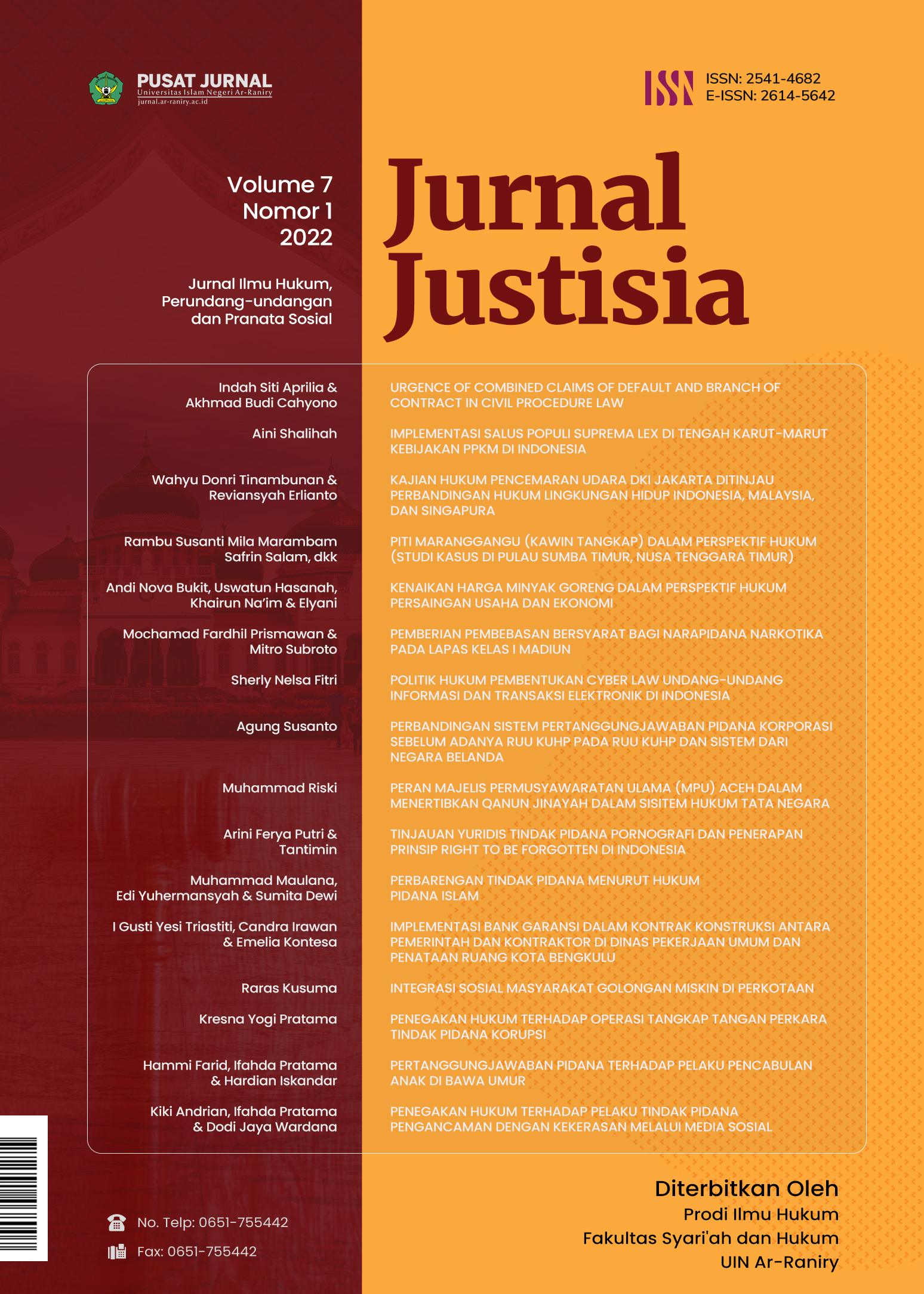Penegakan Hukum Terhadap Operasi Tangkap Tangan Perkara Tindak Pidana Korupsi
DOI:
https://doi.org/10.22373/justisia.v7i1.12009Abstract
Corruption is a crime that is categorized as an extraordinary crime, the eradication of which must also be carried out in an extraordinary or particular way (extraordinary measure). In handling corruption cases, of course, various operations are carried out, including what is known as the Hand Catching Operation with a wiretapping technique, the results of which can be used as evidence for corruption. Law enforcement officers in Indonesia, namely the Corruption Eradication Commission (KPK), the Police and the Attorney General's Office, have the right to conduct wiretapping. However, in terms of its implementation, only the Corruption Eradication Commission can conduct wiretapping in terms of investigations. The efforts made by the Police and the Prosecutor's Office in dealing with Corruption Crimes will be maximized if the authority to conduct wiretapping is equated with the implementation of wiretapping carried out by the Corruption Eradication Commission. The type of research used is normative. The data used is secondary data obtained through library research or documentation and then analyzed by qualitative analysis..
References
Andi, Korupsi di Indonesia dan Pemecahannya. Jakarta: PT. Gramedia Pustaka Utama, 1991.
Undang-Undang No. 2 Tahun 2002 tentang Kepolisian Negara Republik Indonesia.
Undang-Undang No. 11 Tahun 2008 tentang Informasi dan Transaksi Elektronik.
http://www.negarahukum.com/hukum/silent-operation-kpk-ott-vs-penyadapan.html diakses pada tanggal 15 Desember 2021.
http://www.hukumonline.com/berita/baca/lt59e5e35ed4786/ott--tertangkap-tangan-dan-entrapment-1, diakses pada tanggal 20 Desember 2021
Downloads
Published
Issue
Section
License
The Authors submitting a manuscript do so on the understanding that if accepted for publication, copyright of the article shall be assigned to Jurnal Justisia : Jurnal Ilmu Hukum, Perundang-undangan dan Pranata Sosial, Ar-Raniry State Islamic University, Indonesia as the publisher of the journal.
Jurnal Justisia : Jurnal Ilmu Hukum, Perundang-undangan dan Pranata Sosial right of first publication with the work simultaneously licensed under Creative Commons Attribution-ShareAlike 4.0 International License (CC BY-SA 4.0) that allows others to share (copy and redistribute the material in any medium or format) and adapt (remix, transform, and build upon the material) the work for any purpose, even commercially with an acknowledgment of the work's authorship and initial publication in Jurnal Justisia : Jurnal Ilmu Hukum, Perundang-undangan dan Pranata Sosial. Authors are able to enter into separate, additional contractual arrangements for the non-exclusive distribution of the journal's published version of the work (e.g., post it to an institutional repository or publish it in a book), with an acknowledgment of its initial publication in Jurnal Justisia : Jurnal Ilmu Hukum, Perundang-undangan dan Pranata Sosial. Authors are permitted and encouraged to post their work online (e.g., in institutional repositories or on their website) prior to and during the submission process, as it can lead to productive exchanges, as well as earlier and greater citation of published work (See The Effect of Open Access).

